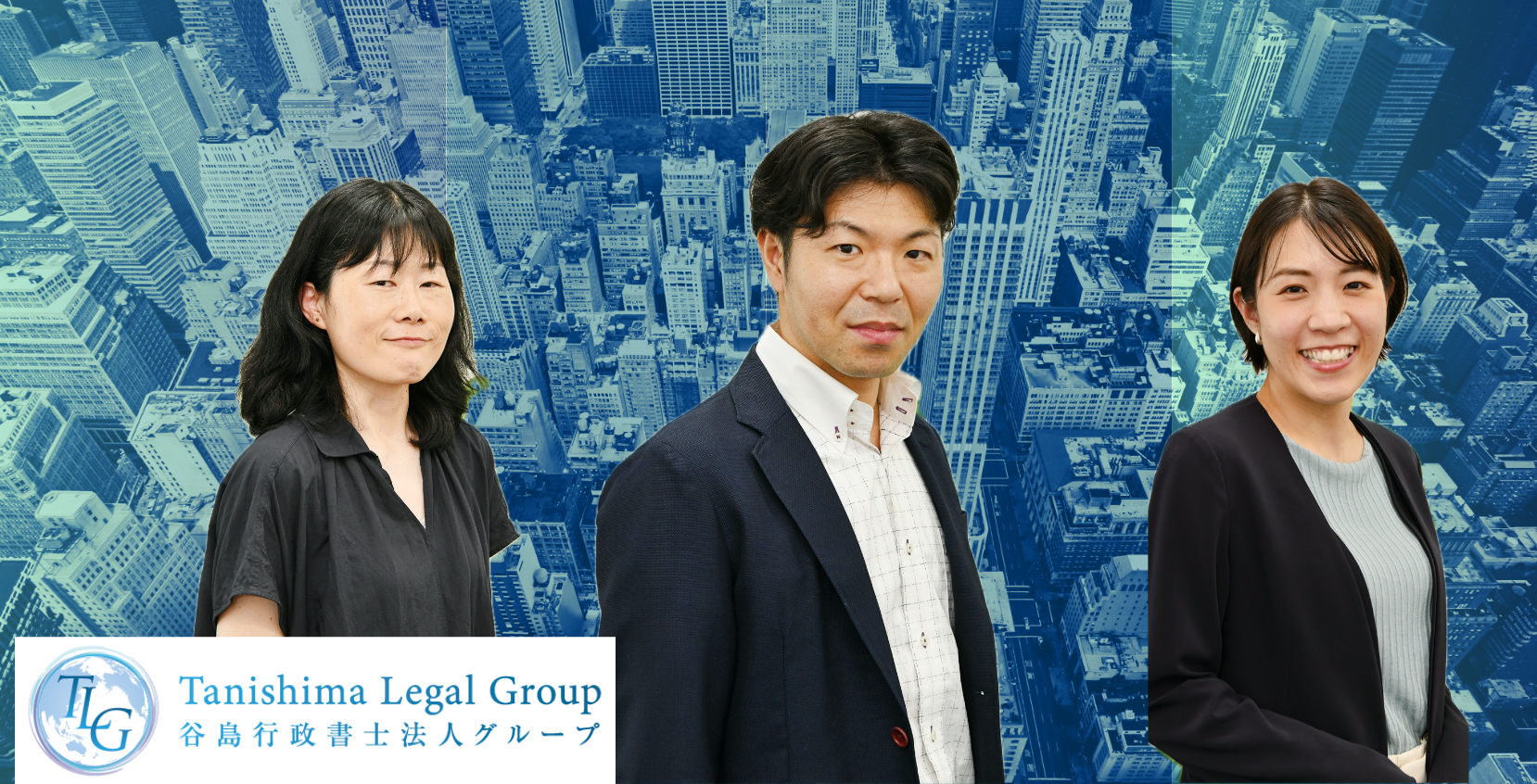Business Manager Visa in Japan — 2025 Revision: Requirements & Documents
2025年10月14日
経営・管理ビザEnglish
Business Manager Visa in Japan — 2025 Revision: Requirements & Documents

Contents
Revised Requirements and Key Documents for Business Manager Visa. 1
The Increasing Importance of the Burden of Proof 2
- Business Scale Requirement: Capital of 30 Million Yen and At Least One Full‑Time Employee, and Supporting Documents. 2
- Business Plan with Expert Evaluation. 3
- Applicant’s Management Qualifications (Degree or 3+ Years’ Experience) and Supporting Documents. 3
- Remuneration Requirement 4
- Business Premises Requirement 4
- Japanese Language Ability Requirement (applies to at least one full‑time person). 4
- [Renewal] Documents Proving Business Stability and Continuity. 4
Summary: Leave Complex Documentation and Applications to a Gyoseishoshi (Immigration lawyer). 5
Revised Requirements and Key Documents for Business Manager Visa
Update Notice — The criteria have changed under the new Ministerial Regulation (promulgated Oct 10, 2025; effective Oct 16, 2025). Where this document uses phrases like “can be interpreted” or “appears to,” it reflects that detailed operational notices and case-by-case assessments govern how officers review files.
Following the major revision of the “Management/Administration” status in October 2025, requirements have become stricter and applications demand more robust evidentiary packages. Simply gathering documents is insufficient; it is essential to explain how each item demonstrates compliance under the revised criteria.
This page sets out key documents and caution points, referencing the Immigration Services Agency’s outline and the Ministerial Regulation on Landing Standards (Management/Administration). Although called “landing standards,” these operate as de facto requirements in new and change applications in practice.
The Increasing Importance of the Burden of Proof
Under the amendment, applicants bear a heavier burden to show, with objective evidence, the business’s scale, stability, and continuity, as well as the applicant’s managerial qualifications. The materials below form the basis of examination.
1. Business Scale Requirement: Capital of 30 Million Yen and At Least One Full‑Time Employee, and Supporting Documents
It can be interpreted that the new scale requirement consists of both: (a) employing at least one full‑time worker who resides in Japan (other than those engaged in the company’s management), and (b) capital or total investment of JPY 30 million or more.
Landing Standards Regulation — Management/Administration:
(ii) The scale of the business pertaining to the application must meet all of the following:
(a) It must be operated with full‑time employees residing in Japan (excluding those under the upper column of Appended Table 1) other than those engaged in its management or administration.
(b) The amount of capital or total investment must be 30 million yen or more.
Compared with the legacy rule (“JPY 5 million capital” or “two full‑time employees”), the revised framework appears to require both elements (capital and at least one full‑time employee). It also appears that the prior “equivalent scale” exception has been removed; confirm with the latest official materials when preparing your file.
For submission materials, the Enforcement Regulations list the following:
Enforcement Regulations — Management/Administration:
(ii) Documents listed under (a) and (b) below:
(a) Documents clarifying the total number of full‑time employees excluding the foreign national, documents pertaining to those employees, documents related to wage payments, and copies of residence certificates, residence cards, or special permanent resident certificates.
(b) Documents clarifying the total amount of capital or investment.
Examples and key points:
- Certificate of Registered Matters: Objective proof that the registered capital meets or exceeds JPY 30 million. Ensure the registry entry clearly reflects the amount.
- Documents Proving Full‑Time Employment: Employment contract, notice of working conditions, residence certificate (or status documents), social/labor insurance enrollment proofs, and wage ledgers. These illustrate that at least one full‑time employee residing in Japan is in place, in addition to the applicant involved in management.
2. Business Plan with Expert Evaluation
A business plan evaluated by a management expert is contemplated. For example, a Small and Medium Enterprise Management Consultant (Chushokigyoshindanshi) may be appropriate. This introduces a second‑opinion step, which may affect timelines.
Enforcement Regulations — Management/Administration:
(a) Copy of the business plan evaluated by an expert with specialized knowledge in management.
Submission materials typically include the plan itself and the expert’s evaluation report. While obtaining an evaluation can strengthen credibility, the substance and coherence of the plan remain essential.
Tanishima Administrative Lawyer Group can, upon request, work with trusted experts and provide advice from a management‑evaluation perspective during plan drafting and revision.
3. Applicant’s Management Qualifications (Degree or 3+ Years’ Experience) and Supporting Documents
The revised criteria can be read to allow two alternative paths: (a) a relevant degree (doctoral, master’s, or professional) in a related field, or (b) at least three years of management/administration experience (including certain preparatory activities under a designated status).
Landing Standards Regulation — Management/Administration:
3. Must meet one of:
(a) Possess a doctoral, master’s, or professional degree in a relevant field (including equivalent foreign degrees), or
(b) Possess at least three years of experience in business management/administration (including designated preparatory activities).
Supporting documents may include:
- Degree certificate(s) and transcripts (if applicable)
- Employment certificates stating title, duties, and period
- Registry records or shareholders’ minutes indicating director status
4. Remuneration Requirement
The remuneration rule appears substantively consistent with prior practice: where the applicant engages in management, remuneration should be at least comparable to that received by a Japanese national performing the same duties.
Landing Standards Regulation — Management/Administration:
4. If the applicant intends to engage in business management, they must receive remuneration equivalent to or higher than that received by a Japanese national performing the same.
Evidence often includes (as applicable): minutes setting director pay, employment contracts/letters of appointment, and external wage data (e.g., MHLW’s Basic Survey on Wage Structure).
5. Business Premises Requirement
The requirement to secure suitable business premises continues to apply. In light of the scale requirement, it can be interpreted that home‑office setups may not satisfy the criteria in many cases; confirm with the latest guidance when selecting premises.
Landing Standards Regulation — Management/Administration:
1. An office for conducting the business must exist in Japan. If operations have not yet commenced, facilities to be used as an office must be secured.
6. Japanese Language Ability Requirement (applies to at least one full‑time person)
It can be interpreted that, among those managing or working full‑time in the business (excluding part‑time), at least one person should have a level of Japanese that allows highly self‑reliant understanding and usage. Public explanations frequently reference CEFR B2 / JLPT N2 as a working benchmark. Under the Enforcement Regulations, materials that demonstrate Japanese language ability are contemplated; in practice, a JLPT certificate (e.g., N2) can be interpreted as usable supporting evidence.
Landing Standards Regulation — Management/Administration:
3. Among those managing the business or engaged in it (excluding part‑time), at least one individual must possess a level of Japanese that allows highly independent understanding and usage; the applicant is expected to reside in Japan when managing/engaging in the business.
7. [Renewal] Documents Proving Business Stability and Continuity
This reform also applies to extension applications for management and administration. However, a three-year grace period has been established. Therefore, even if you cannot meet the requirements immediately, failure to do so within three years may result in your application being denied. Preparation is necessary starting now.
Additionally, when applying to extend your period of stay, you must prove that your business is actually stable and ongoing.
Furthermore, a written explanation of recent business activities is required.
Incidentally, these requirements lack explicit statutory basis. (This is because the relevant Ministerial Ordinance on Landing Standards relies on indirect “reasonableness” criteria.) Practical application and precedents are crucial.
Summary: Leave Complex Documentation and Applications to a Gyoseishoshi (Immigration lawyer)
Post‑amendment filings benefit from structured evidence planning for each requirement (scale, plan evaluation, qualifications, remuneration, premises, language). If you are unsure how your situation maps to the revised criteria, consider consulting a Gyoseishoshi (Immigration lawyer) for case‑specific guidance.
Sources
Reference: Official Gazette (Kanpō) 2025‑10‑10; Immigration Services Agency materials and Enforcement Regulations for Management/Administration.
CATEGORY
この記事の監修者

-
谷島行政書士法人グループCEO・特定行政書士
外国人雇用・ビザの専門家として手続代理と顧問アドバイザリーを提供。ビザ・許認可など法規制クリアの実績は延1万件以上。
- 講師実績
▶ ご依頼、セミナー、取材等のお問合せはこちら
行政書士会、建設やホテル人材等の企業、在留資格研究会等の団体、大手士業事務所、その他外国人の講義なら幅広く依頼を受ける。
- 対応サービス
- 資格等
特定行政書士、宅建士、アメリカMBA・TOEIC、中国語(HSK2級)他
- 略歴等
・札幌生まれ、仙台育ち、18歳から東京の大学へ進学。
・自身が10代から15種ほどの職種を経験したことから、事業のコンサルと経営に興味を持ち、その近道と考え行政書士受験、独学合格(合格率2.6%)。
・行政書士・司法書士合同事務所を経験後、大和ハウス工業㈱に入社。「泥くさい地域密着営業」を経験。
・独立し業務歴15年以上、マサチューセッツ州立大学MBA課程修了、現在に至る。
- 取引先、業務対応実績一部
・企業:外国上場企業などグローバル企業、建設など現場系の外国人雇用企業
・外国人個人:漫画家、芸能人(アイドルグループ、ハリウッドセレブ)、一般企業勤務者他








